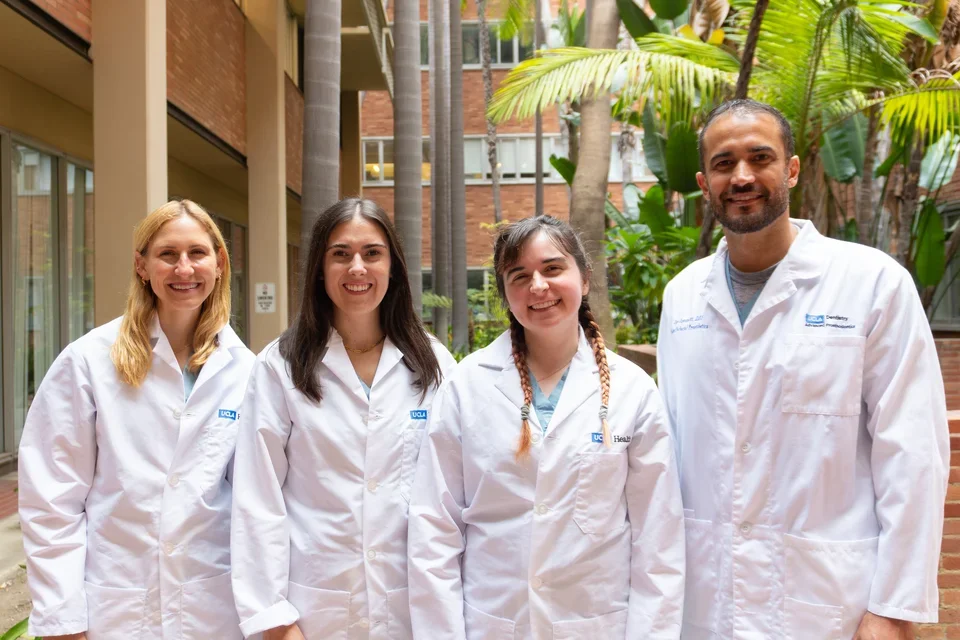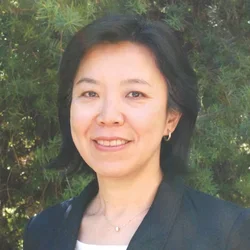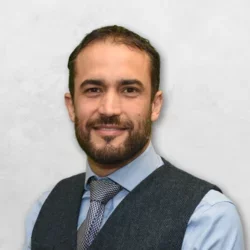Maxillofacial Prosthetics
Fellowship Program

Fellowship Program
Length of Program: 1 year
Number of Positions: 3 for graduates of CODA-accredited dental schools
Financial Arrangement: UC Salary Breakdown
Program Director:

Associate Program Director:

The UCLA Maxillofacial Prosthetics Fellowship Program is a postgraduate certificate program specifically devoted to maxillofacial prosthetics. Applicants must have completed an ADA-accredited postgraduate training program in prosthodontics or its equivalent. This program begins on July 1 of each year (hospital orientation may be held three days prior). Upon successful completion of the program, the resident is awarded two certificates: a certificate of postgraduate study from the UCLA School of Dentistry and a certificate of residency from the Ronald Reagan UCLA Medical Center.
The purpose of the UCLA Maxillofacial Prosthetics Fellowship Program is to provide advanced training in the diagnosis and supportive treatment of patients with maxillofacial anomalies. Fellows will have the opportunity to treat patients with severe oral and facial deformities from cancer, trauma, or congenital malformations. Training is enhanced by a modern and well-equipped facility, the Maxillofacial Prosthetics/Hospital Dentistry Clinic. This clinic is an outpatient clinic of the Ronald Reagan UCLA Medical Center, which enables residents to have close interactions with faculty, interns, and residents from other disciplines.
The didactic portion of this program is flexible and takes into account the individual’s prior training and experience. Courses are available in head and neck anatomy, oral pathology, pharmacology, fixed and removable prosthodontics, radiation biology, and biostatistics. Didactic training in research methodology is available, with an original research project if residents are so motivated. Required courses are presented in various phases of maxillofacial rehabilitation, including speech pathology, speech therapy, restoration of congenital and developmental defects, and restoration of various acquired maxillofacial defects. Periodic seminars with regular review of pertinent subjects in the literature are a regular part of the program.
Clinical training includes cleft palate prosthodontics, restoration of acquired oral and facial defects, and implant prosthodontics. Fellows are also afforded the opportunity to work with radiotherapists and evaluate and maintain the oral and dental health of patients before, during, and after their radiation therapy. Fellows work closely with surgical disciplines in restoring a variety of defects, including construction of cranial and soft tissue implants, immediate surgical obturators, surgical splints, and other required prostheses.
Selection Process & Factors
Selected candidates will be invited to interview. If you have been selected, you will be notified by telephone and/or email.
Timing of Interviews: August – September
Application Deadline: July 15
The admissions committee considers the following criteria in its decisions:
- Academic achievement (GPA and class rank if available)
- Performance on NBDE
- Content of personal statement
- Content of recommendation letters
- Overall impression at the personal interview
This program does not participate in the Postdoctoral Dental Matching Program. Accepted candidates are notified by telephone, email, and/or letter. Decisions will be available September - October. A letter of acceptance signed by the Program Director and Associate Dean of Academic Affairs will be issued upon acceptance.
*Before the start of the program, residents must verify and provide proof of authorization to work and study in the U.S. Failure to obtain or maintain all necessary visas, licenses, and permits and/or to maintain eligibility to work in the U.S. shall result in automatic suspension and may result in dismissal. Verification of the aforementioned must be received by June 1, of the admission year, for U.S. citizens, U.S. permanent residents, and by June 21, of the admission year, for those Canadian citizens applying for TN status, or acceptance may be withdrawn. For questions, please contact our Postgraduate Programs Officer at (310) 825-7478 or postdds@dentistry.ucla.edu.